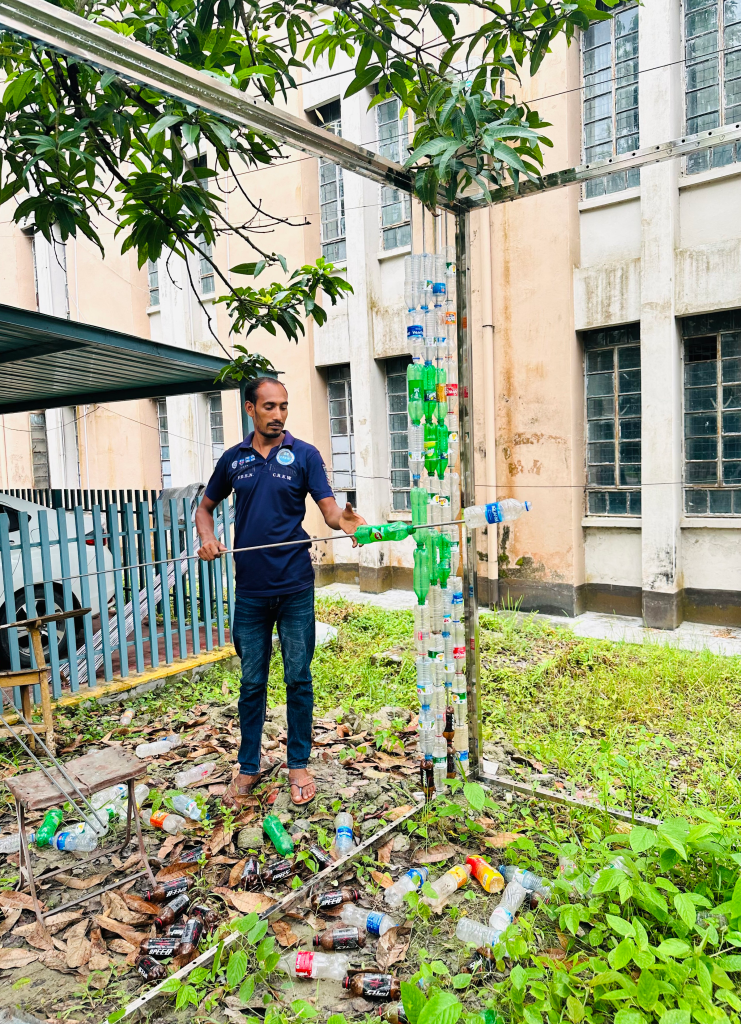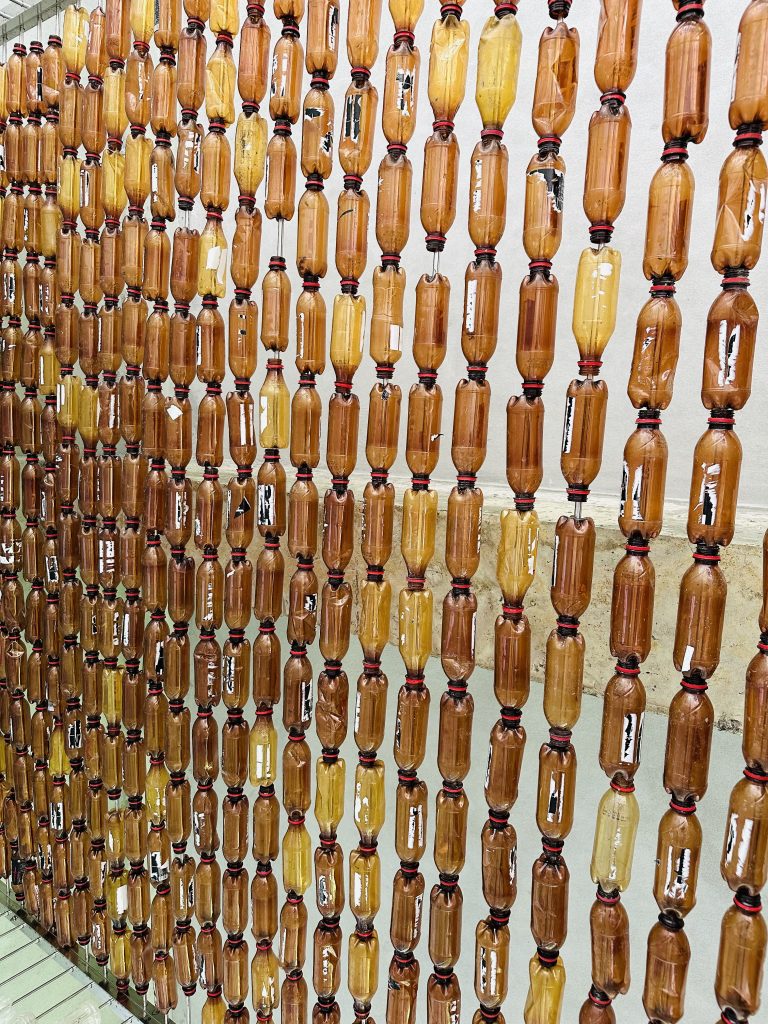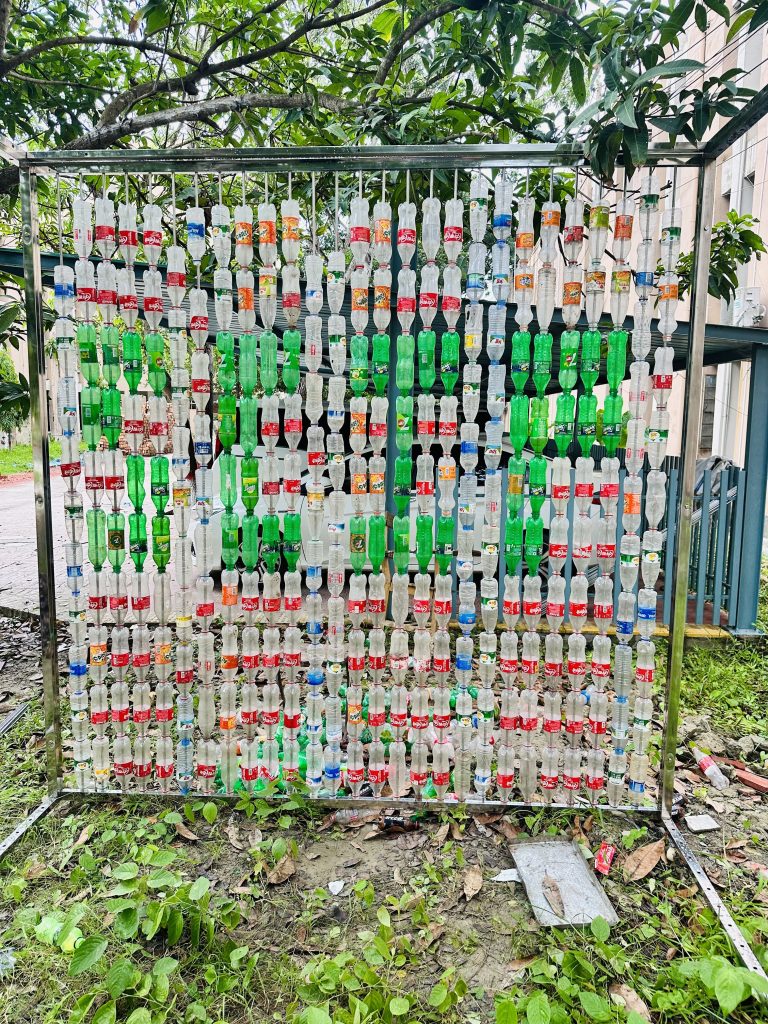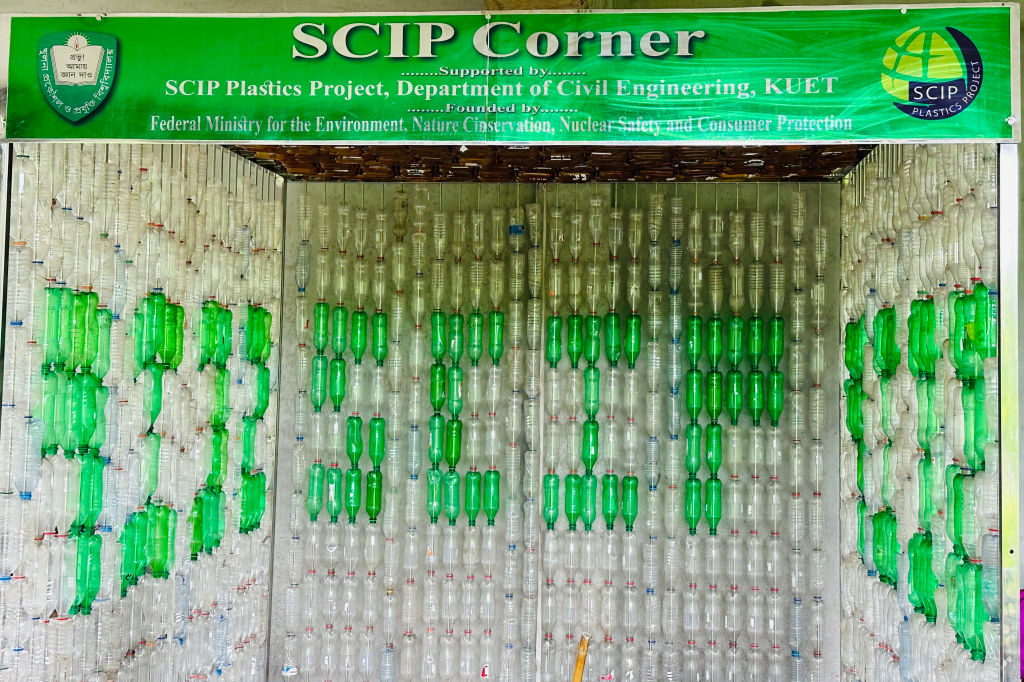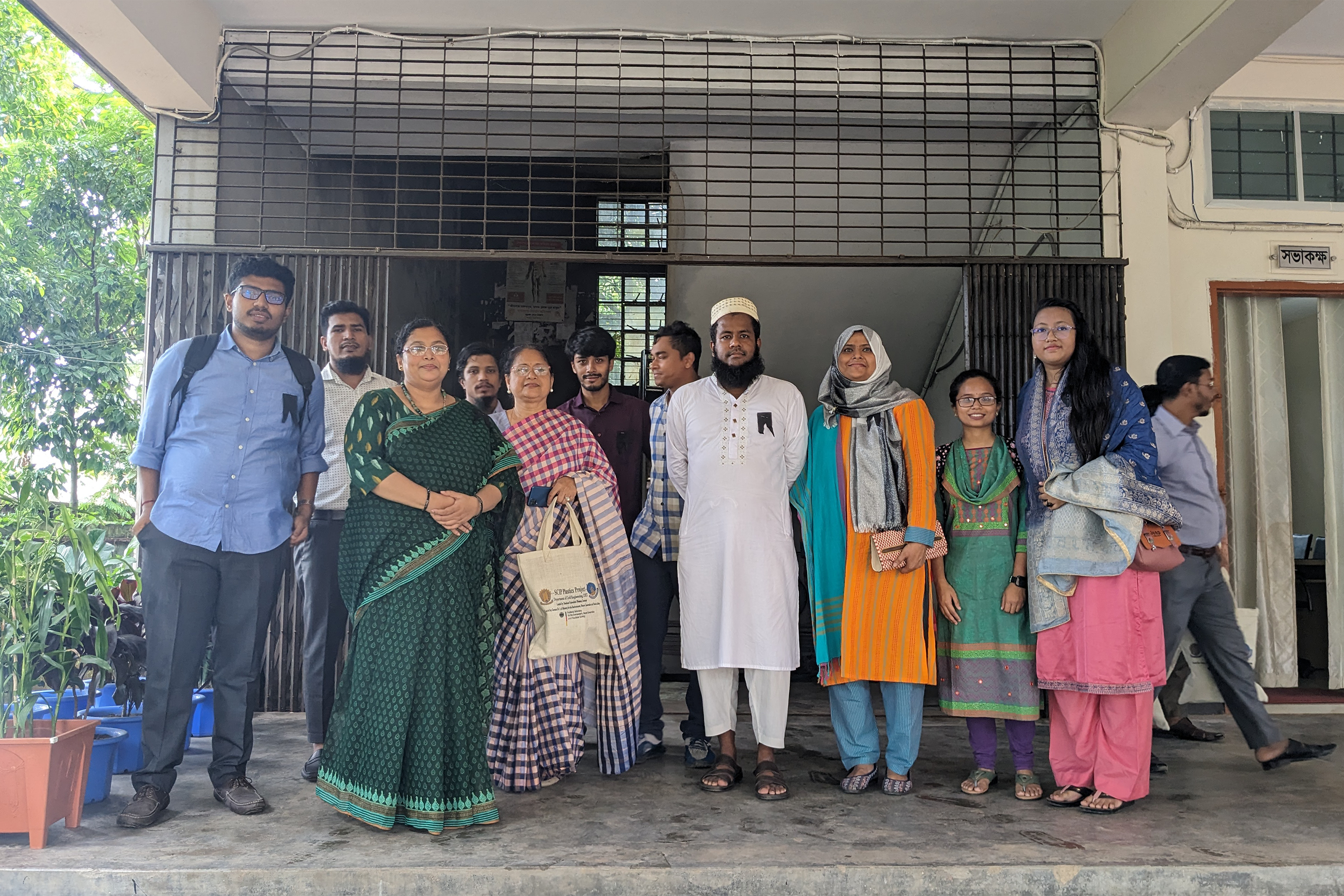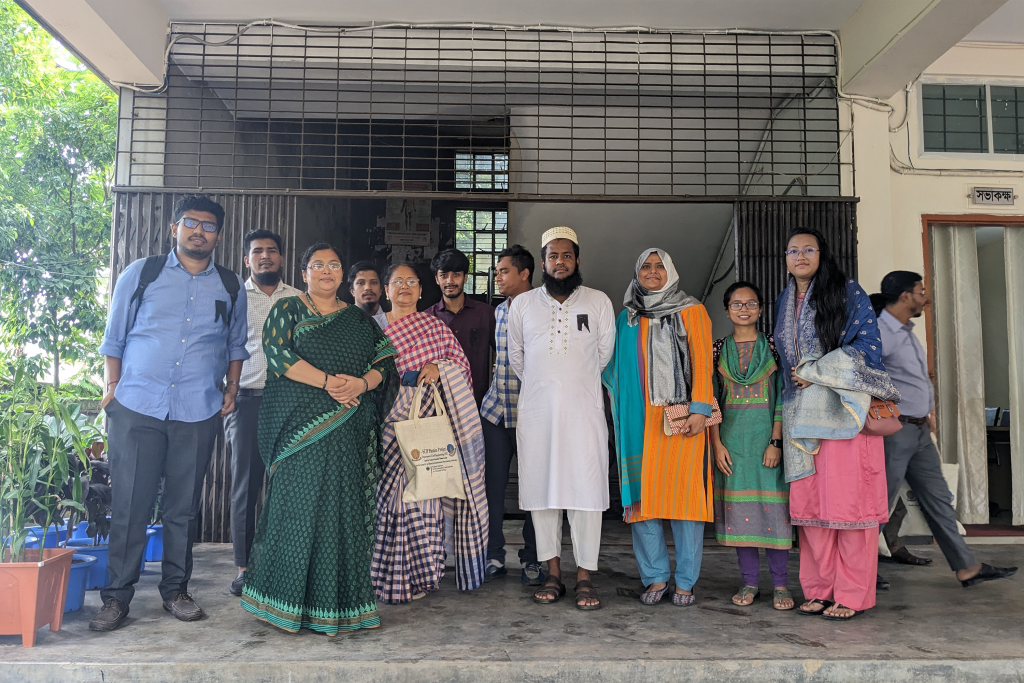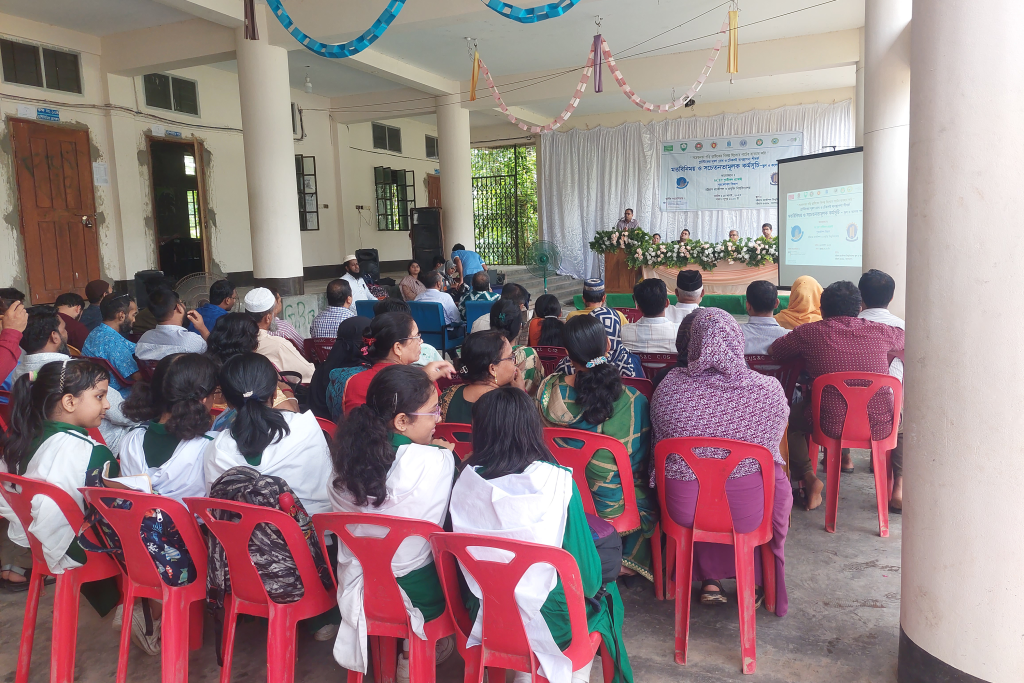Recently, within the SCIP project, an awareness-raising initiative has resulted in the creation of two SCIP corners. The design rests upon repurposed plastic bottles, particularly those used for beverages. The construction utilizes a total of 1144 reused plastic bottles, including 630 white, 364 brown, and 150 green PET bottles. Its design aims to exemplify the capacity for integrating discarded materials into construction methodologies, simultaneously addressing environmental concerns, and encouraging thinking outside the box to be receptive to novel ideas regarding waste management. This structure is planned to serve as a platform for presenting the SCIP Plastics Project on various occasions, such as conferences, campaigns, and observance days. It functions as a hub for disseminating knowledge, communicating research outcomes, displaying innovative products and more.
